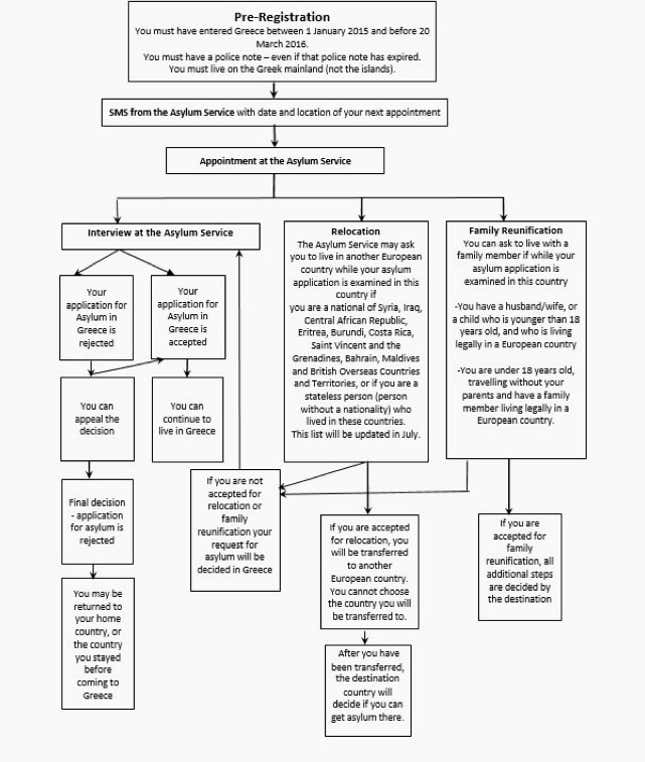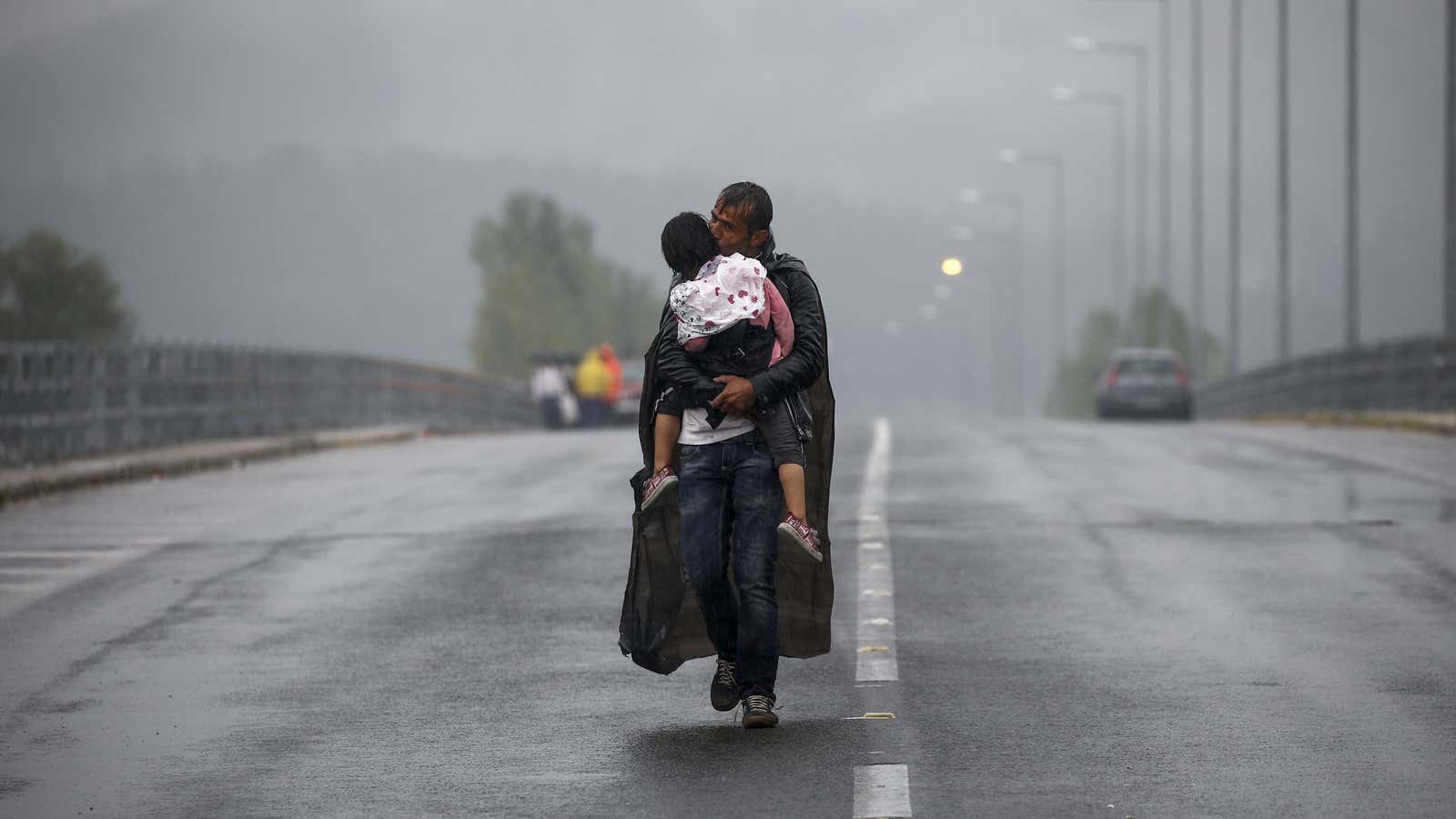Two months after Europe’s agreement with Turkey went into effect, Greece has finally shared the rules for asylum-seekers already in Greece to apply for refugee status. The process, explained in a handout distributed by the UN High Commission for Refugees (UNHCR) as well as the Greek government, adds a new step to the current system: pre-registration, which allows asylum-seekers to live in Greece until their application has been processed.
Pre-registrations, the pamphlet explains, will take place in designated centers, starting with people living in official camps (Idomeni is the largest). Then, people who live in “informal sites,” or open camps, will be taken to the pre-registration centers, but only “if they are willing to move to an official site,” which, as some noted, might take months. Lastly, people who found accommodations in hotels or other residential places, will be allowed to pre-register.
Once asylum-seekers complete pre-registration, they must get an appointment at the Asylum Service office and sit an interview to explain why they need asylum.
Only people who have entered Greece between Jan. 1, 2015 and March 20, 2016 will be allowed to pre-register. They also must hold a police note acknowledging their presence in Greece and be living on the mainland. People on the islands can’t apply for asylum this way. Refugees also need cellphone access, as notifications about next steps are communicated via SMS.
Once all of these conditions are satisfied, the path to asylum is long and complicated. This flow chart explains the process:

Of particular note is how difficult it is, according to the Dublin regulation, to be relocated. People who aren’t joining their family or are not from a specific set of countries (Syria, Iraq, Central African Republic, Eritrea, Burundi, Costa Rica, Saint Vincent and the Grenadines, Bahrain, Maldives), or who entered Greece before September 16, 2015, have to remain in their country of arrival, in this case, Greece.
According to UNHCR data elaborated by Open Migration, though over 850,000 migrants arrived in Greece by sea in 2015, only 13,210 applied for refugee status in Greece. About 10,000 of those requests were processed, and 41.8% applicants were granted asylum. Last year, nearly half a million refugees applied for asylum in Germany. About half those requests have been processed, with 56.5% accepted.
